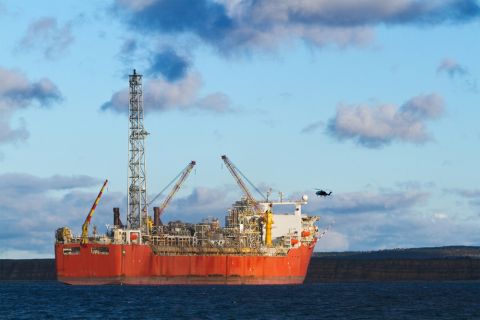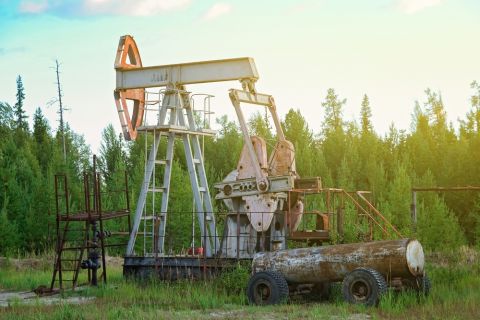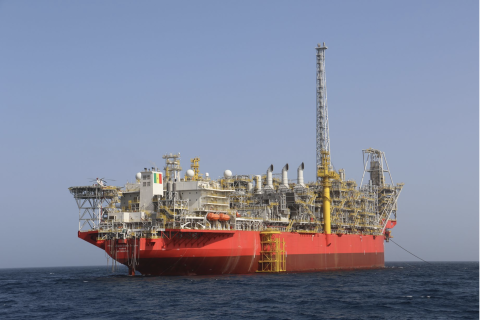It takes an honest man, or a completely remorseless idiot, to admit, as did Alan Greenspan in late October, that there was a flaw in his economic theory that drove the US economy for a couple of decades, a flaw that has placed it and the global economy on the slippery slope to depression. As it turns out, US banks were not capable of self-regulation, as he assumed they would be, nor did they protect their stockholders, as he assumed they would. The result, as you are well aware, was the collapse of a large portion of the US banking industry, a collapse that has rumbled through the world’s economies. That’s a boomer of a theory Big Al.
Oil and gas prices have plummeted as a result of decreasing demand. As I write this, OPEC has just announced a planned 1.5 million b/d cut in production to buoy oil prices. It’s a pretty good bet that the cut will not work. First, it is not large enough to take into account further demand reduction. Second, an increase in prices at the pump will dampen demand further. Third, OPEC members will surely cheat, as they almost always have, and will not adhere to the cut. How can some of them whose faltering economies are based primarily on oil exports? Finally, this move will lead to global condemnation of the OPEC members as the move will be seen as exacerbating the current financial crisis. So I would not expect any great rise in oil prices, nor in gas prices.
Right now, light, sweet crude for December delivery is trading at near US $64 on the NYMEX. Let us assume that it stays at that price. Natural gas closed at $6.42 per Mcf. Let us also assume that this price carries forward. At these prices, some analysts are predicting as much as a 30% downturn in North American drilling next year. The slowdown engendered by such a scenario would have serious impacts on the industry, from job losses, to business reorganizations, to business failures. It will also reverse a lot of our current thinking. For instance:
Peak Oil. This conversation is, at best, moved to the back burner and, at worst, becomes irrelevant if demand sinks low enough. At the very least, the peak of the curve, where ever that might be, is shifting further out in time each day the economic crisis continues.
R&D. It has happened before, and it will happen this time. As revenues shrink, budgets shrink. One of the areas impacted almost immediately is research and development (R&D). If R&D is not budgeted, it probably won’t be. If it is, that budget will likely be cut severely.
Unconventional Resources. A lot of industry interest has been focused on hot new unconventional plays. At the prices above, some unconventional resources are in peril. The first example that comes to mind is arctic oil and gas. The technology and regulations make it too expensive at today’s prices. Ultra-deepwater targets will probably become largely untouchable also at current prices. And some of the glitter will rub off ongoing, more expensive onshore unconventional plays.
The Great Crew Change. This might be the most devastating impact of the economic crisis on our industry. Already we have had word of the recall of job offers and hiring freezes. With layoffs looming there will be little hiring of new blood. That means we will have to manage with what we have, and probably less of what we had. More importantly, it means that when the industry recovers, the great crew change will become the great disaster. The industry may not be able to keep up with renewed demand due to serious shortages of skilled personnel.
It is not pleasant to ponder what might happen if the current economic crisis continues, much less worsens. It is, however, prudent to examine likely scenarios. We react best to those situations we understand most clearly. The impacts of the downturn could be severe. They could change the way we view the industry and the way we identify and address issues. We should understand that.
Recommended Reading
NAPE: Chevron’s Chris Powers Talks Traditional Oil, Gas Role in CCUS
2024-02-12 - Policy, innovation and partnership are among the areas needed to help grow the emerging CCUS sector, a Chevron executive said.
TotalEnergies Starts Production at Akpo West Offshore Nigeria
2024-02-07 - Subsea tieback expected to add 14,000 bbl/d of condensate by mid-year, and up to 4 MMcm/d of gas by 2028.
US Drillers Add Oil, Gas Rigs for Third Time in Four Weeks
2024-02-09 - Despite this week's rig increase, Baker Hughes said the total count was still down 138 rigs, or 18%, below this time last year.
NAPE: Turning Orphan Wells From a Hot Mess Into a Hot Opportunity
2024-02-09 - Certain orphaned wells across the U.S. could be plugged to earn carbon credits.
Sangomar FPSO Arrives Offshore Senegal
2024-02-13 - Woodside’s Sangomar Field on track to start production in mid-2024.




